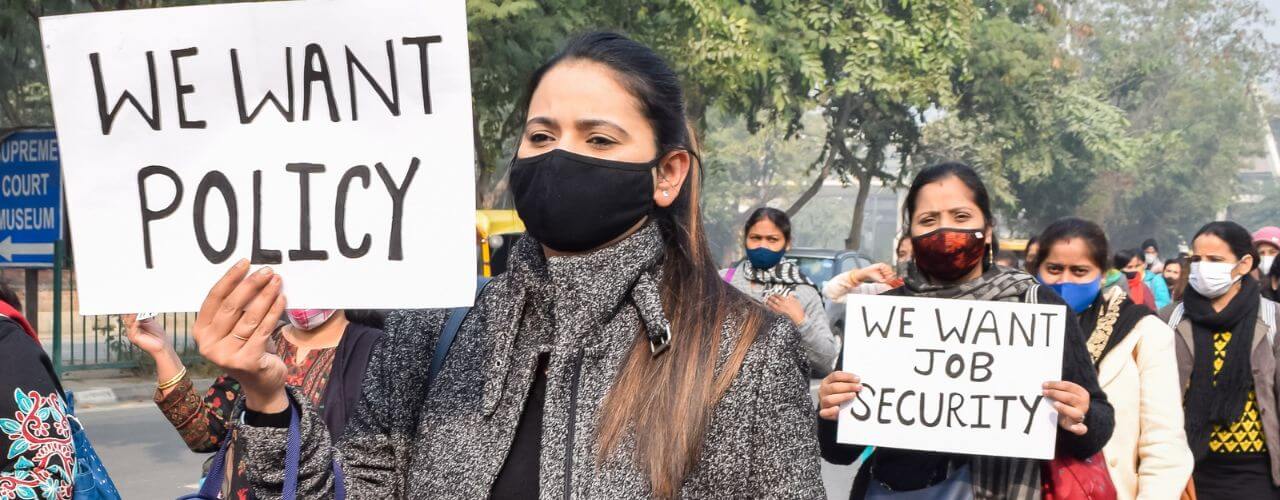
Table of Contents
Demotion Philippines: What a good HR should know
Demotion in the Philippines is when “… an employee is relegated to a subordinate or less important position constituting a reduction to a lower grade or rank, with a corresponding decrease in duties and responsibilities, and usually accompanied by a decrease in salary.” [GR 171764]

Demotions are different from transfers (although some cases tackle the 2 issues together, particularly when a transfer of an employee may also contain a demotion) and are the reduction in rank, pay or benefits.
Demotion sounds very similar to Diminution, doesn’t it?
That is because Demotion and Diminution look very similar – and yet the Supreme Court has stated that Demotion does fall under the Management Prerogative.
However, as with most Philippine Labor Laws, it must:
· Be for a valid and just cause (GR 198534, citing Jardine Machine Shop vs NLRC)
· Follow the correct Due Process (GR 155264)
Now, because Demotion shares similarities with Diminution (See our article Diminution Philippines for further details) a Philippine HR must be careful in how a Demotion is done.
Demotion Philippines due to Poor Performance

Demotion in the Philippines can be contemplated in cases of an employee’s poor performance.
In GR 125303, Fuerte was demoted as he was not able to meet his supervisor’s target for 3 months.
The Court stated that the right to demote an employee also falls within the category of management prerogative.
The Court further states that an employer is entitled to impose productivity standards for its workers with non-compliance having a penalty even more severe than demotion.
The Court also explains some guidelines for Demotion.
“Besides, even assuming arguendo that there was some basis for the demotion, as alleged by the petitioner, the case records are bereft of any showing that the private respondent was notified in advance of his impending transfer and demotion. Nor was the given an opportunity to refute the employer’s grounds or reasons for said transfer and demotion. In Gaco v. National Labor Relations Commission, it was noted that:

While due process required by law is applied on dismissals, the same is also applicable to demotions as demotions likewise affect the employment of a worker who’s right to continued employment, under the same terms and conditions, is also protected by law. Moreover, considering that demotion is, like dismissal, also a punitive action, the employee being demoted should as in cases of dismissals, be given a chance to contest the same.”
In Fuerte’s case, the Court was satisfied that the Demotion was for a valid cause – in this case, his performance did not reach the standards required.
To prove in court that an employee’s performance is up to par, it is best to prepare an investigation, have clear standards, show proof and essentially show that the demotion had caused.
Then, present this evidence clearly to the employee and ask him for his explanation.

Now, this case shows that Philippine Demotions are allowed in the workplace – however, the court also seems to require that it must follow due process.
Now, what is the due process that Demotions in the Philippines must follow?
Demotion Due Process and the Twin Notice Rule
Demotion in the Philippines requires following Due Process – and the Court has specified that the correct process to follow is that of the Twin Notice Rule.
Demotion and the Twin Notice Requirement were discussed in GR 155264:
“…the employer’s right to demote an employee requires the observance of the twin-notice requirement…”

In Philippine Labor Law, the Twin Notice requirement is a specific requirement requiring 2 written notices to the employee:
- The first written notice should:
- state the grounds
- narrate the facts
- ask for a written explanation within at least 5 calendar days.
The first written notice should give the employee ample opportunity to be heard, which may include a hearing.
- The second written notice should contain the decision and should also be served on the employee.
The Twin Notice rule ensures that the employee is informed throughout the process. It helps him understand what is going on and allows him to present his side.
In cases of Philippine Demotion, a good HR will strictly follow this process as well as consult with a Labor Lawyer so as to do this as per the law.
Demotion Philippines: Major Points

Demotion in the Philippines is when an employee is removed from his position and put in a lower position.
There are a few major items to keep in mind if you are a Philippine HR when you are doing this:
- Demotion is part of management prerogative
- Demotion must be for a just cause so investigate and gather proof
- Demotion must follow the twin notice rule – and be strict about informing and allowing the employee to be heard
A good HR will be very detailed in following the above guidelines because Demotion is so similar to Diminution.

And out of an excess of caution – a good HR will consult several Philippine Labor Lawyers so as to get a comprehensive view of the possible Demotion before the demotion happens.
If a Philippine Demotion is done without the right advice, it may be construed as Diminution with the corresponding possible case being Constructive Dismissal.
As Labor Lawyers we prefer that our corporate clients avoid cases – it saves them time, effort, expense and worry.

